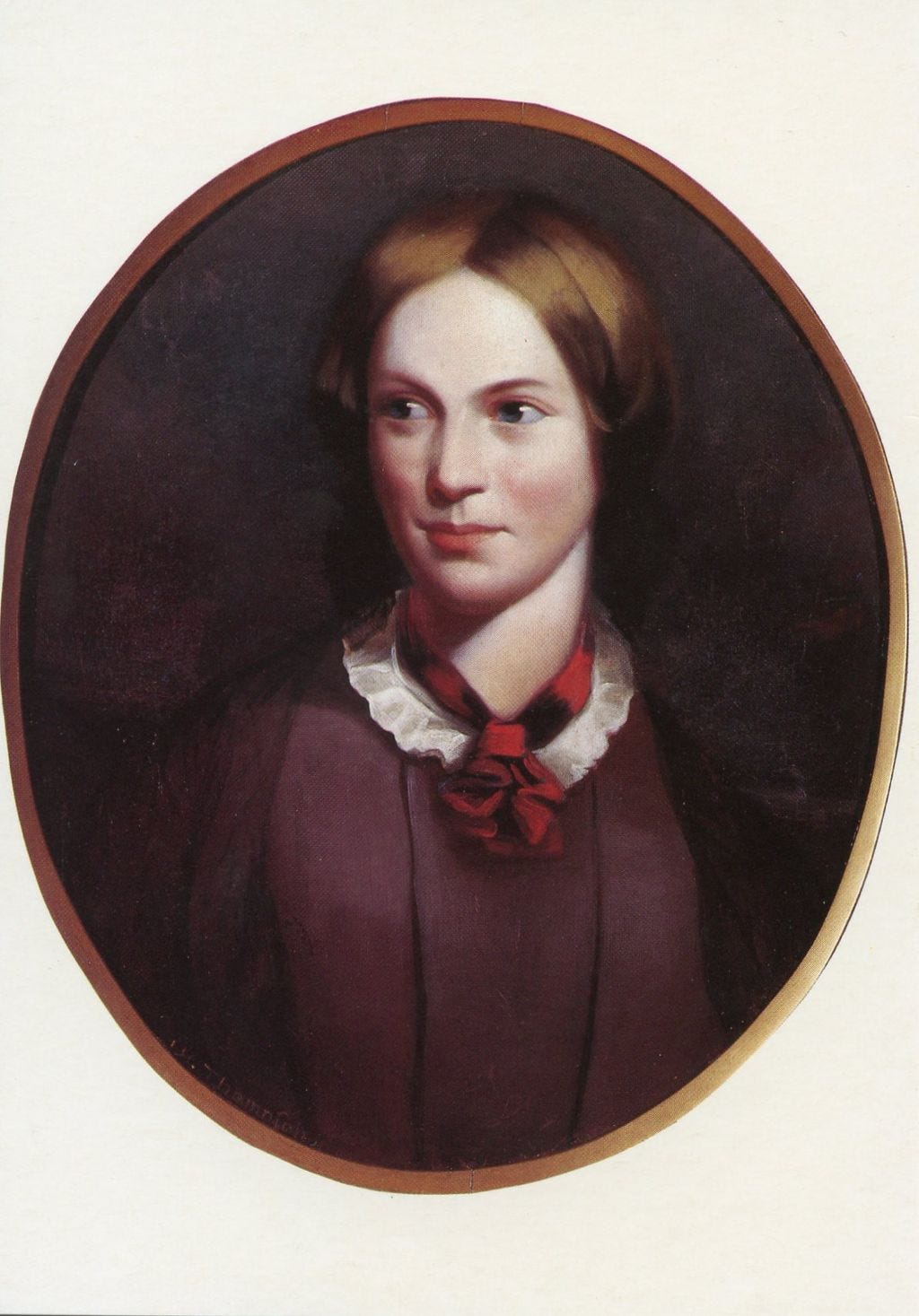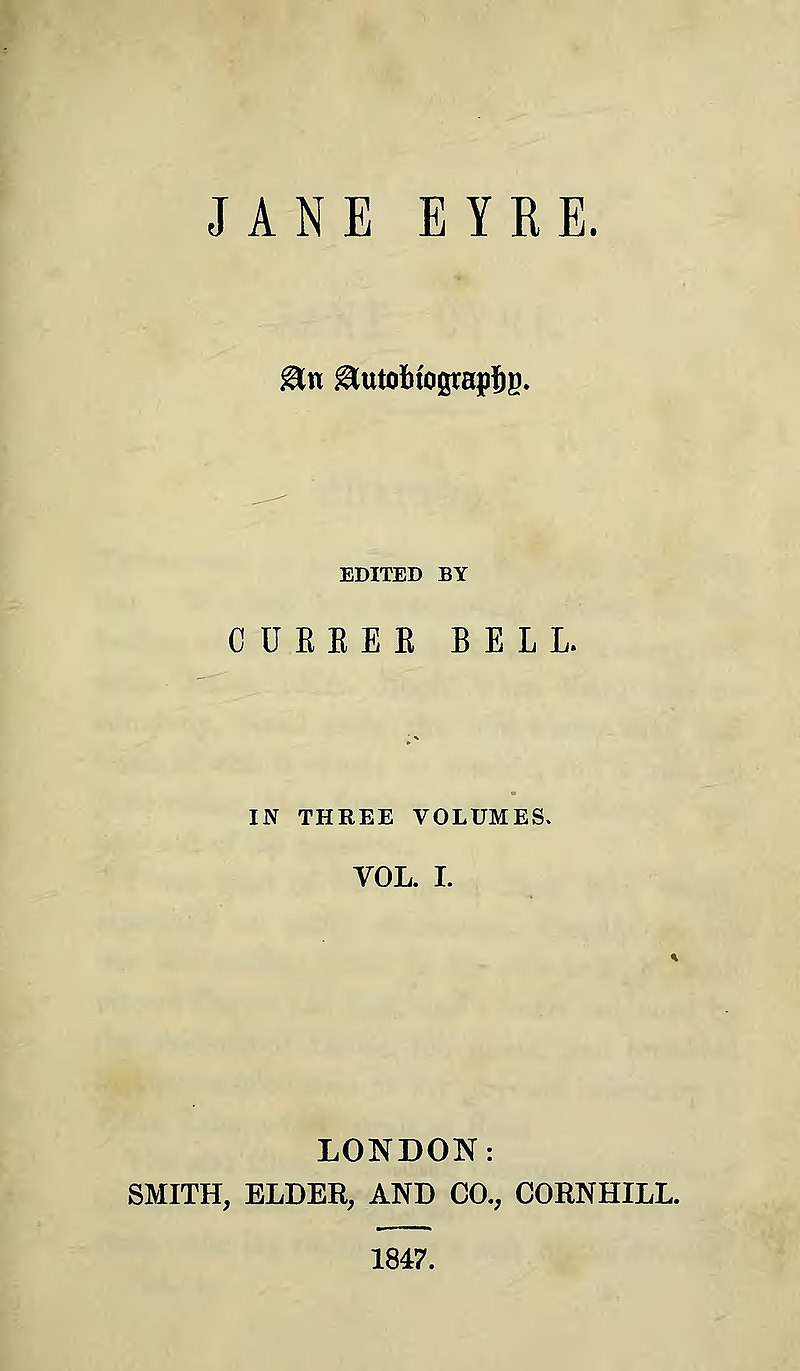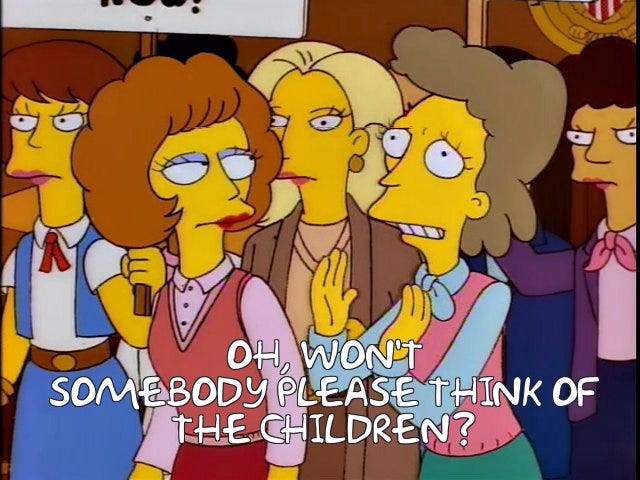Even though academics love Jane Eyre, it really is a good novel. And even though academics love Jane Eyre, it isn’t exactly the novel they think it is.
I haven’t read everything written about Jane Eyre – it would take many boring lifetimes to do so – but I do know that the scholarly book The Madwoman in the Attic by Sandra M Gilbert and Susan Gubar is perhaps more influential than it should be.
Usually, I don’t mind what academics write – they’ve got to pay their bills, too. But the arguments in The Madwoman in the Attic are so widely repeated in student essays that a distorted view of the novel and its author starts to develop.
Very briefly, the “Madwoman” thesis implies that Bertha Mason, Mr Rochester’s mad, violent, attic-bound wife, represents Jane’s – and Charlotte Brontë’s – inner rebellion and rage, their sense of injustice within oppressive Victorian doctrines. What shocked the novel’s first reviewers was not its coarseness and sexuality but its “‘anti-Christian’ refusal to accept the forms, customs, and standards of society.”
Jane Eyre is a novel with some spice, but John Sutherland makes two short objections to this thesis. The first (you might call it the “annoying schoolboy” objection) is that Bertha Mason isn’t locked up in an attic; she’s housed on the third floor of a separate annex, which has its own staircase and is accessible only by a master key.
The second objection – which I’d like to develop here – is that the “Madwoman” thesis is a brazenly ideological one, ignoring many important aspects of the novel and its author to promote a political conclusion. One must admire the ingenuity of academics who can “discover” the “correct” interpretation of a novel after almost all its readers (and its author) failed to do so.
Critics have explored the Brontës’ work from every possible angle, but what is almost impossible to find in the academy is an interpretation emphasising that Jane Eyre is not at all an “anti-Christian” novel but a deeply Christian one.
Charlotte Brontë was the daughter of Reverend Patrick Brontë. She married Arthur Bell Nicholls, one her father’s curates, and died in his arms. She attended church weekly (often daily), and no subject was more important to the Victorians than religion.
Understandably, some readers might have missed this emphasis because the religious themes of the novel can be overshadowed by Jane’s feistiness.
It’s hard not to sympathise with Jane Eyre because when we first meet her, she isn’t a stubborn adult but a vulnerable and mistreated child. Her nursemaid Bessie warns her that she’s dependent on her cold-hearted aunt Mrs Reed, the only person keeping her out of the “poor-house.” As Heather Glen points out, the England depicted here is that of the New Poor Law, where the chill clutch of politics replaces the warm hug of charity. (Which religion considers charity a spiritual virtue? Hint: it’s not academic feminism!) At Lowood school, orphans like Jane are abused and starved; the destitute treated with suspicion. The only good people Jane finds there are the saintly Helen Burns (who really does turn the other cheek and love her enemies) and Miss Temple (note the name) who earns Jane’s loyalty and encourages her to work on her studies. When Miss Temple leaves Lowood to get married, Jane decides to quit school and become a governess.
She accepts a job tutoring a little French girl, Adèle Varens, at a country house called Thornfield, owned by the enigmatic and alluring Mr Rochester. Today, Jane would cause a very big problem in HR. Against her better judgement, she finds herself attracted to her employer:
“My master’s colourless, olive face, square, massive brow, broad and jetty eyebrows, deep eyes, strong features, firm, grim mouth,—all energy, decision, will,—were not beautiful, according to rule; but they were more than beautiful to me; they were full of an interest, an influence that quite mastered me,—that took my feelings from my own power and fettered them in his. I had not intended to love him; the reader knows I had wrought hard to extirpate from my soul the germs of love there detected; and now, at the first renewed view of him, they spontaneously arrived, green and strong! He made me love him without looking at me.”
After flirting with Blanche Ingram to make Jane jealous, Mr Rochester proposes to Jane.
But there are two problems. The first is that Mr Rochester is – or was – an energetic womaniser. His name recalls the famously dissolute 2nd Earl of Rochester, and the master of Thornfield tells Jane about his past life:
“Provided with plenty of money and the passport of an old name, I could choose my own society: no circles were closed against me. I sought my ideal of a woman amongst English ladies, French countesses, Italian signoras, and German gräfinnen.”
(This passage clearly notes that sexual promiscuity has historically been a privilege of the rich.)
The second problem is that he’s already married to Bertha Mason and can’t divorce her. Rochester acknowledges his past, admits that he has been “a base and low rake,” and begs Jane to stay.
She goes.
At this point, I can’t help but recall John Bunyan’s Protestant masterpiece, The Pilgrim’s Progress, which describes the Christian struggle to resist temptations and preserve the soul. Jane’s defiance of Rochester is expressed in precisely such terms:
“He seemed to devour me with his flaming glance: physically, I felt, at the moment, powerless as stubble exposed to the draught and glow of a furnace: mentally, I still possessed my soul, and with it the certainty of ultimate safety.”
Still possessing her soul, Jane flees Thornfield. She finds herself stranded. Without any money, she begs for cold porridge from a pig’s trough. Dying of “want and cold,” she cries out, “Oh, Providence! sustain me a little longer! Aid!—direct me!”
Reader, at this point of the novel, Jane lacks cosy moments.
She’s eventually taken in by the three Rivers siblings: Diana, Mary, and St. John, the first two named after religious virgins. (Diana and Mary are unmarried bluestockings who read poetry and study German.)

If Rochester is love without religion, St. John Rivers is religion without love. Academics note that Jane feels nothing for St. John and his cold, hard Calvinism – but hardly any realise that she scolds him (and herself) in Christian terms. St. John
“had not yet found that peace of God which passeth all understanding [Philippians 4:6]: he had no more found it, I thought, than had I with my concealed and racking regrets for my broken idol and lost elysium—regrets to which I have latterly avoided referring, but which possessed me and tyrannised over me ruthlessly.”
St. John wants to marry Jane and take her on a missionary trip to India. She almost accepts, but hears a voice crying “Jane! Jane! Jane!” and runs back to Thornfield.
She finds that Bertha Mason has burned the house to the ground and committed suicide. Rochester is blind and maimed. Jane offers be his carer or housekeeper. But what she really wants from him is a marriage proposal.
Reader, she marries him.
Before you start calling Rochester rude names, and scold Jane for marrying him, consider that Charlotte Brontë’s purpose was to show that Rochester is guilty of callousness and attempted bigamy, but also that he’s forgivable and redeemable.
Such an idea is expressed in a letter Charlotte Brontë wrote to W.S. Williams:
“Mr Rochester has a thoughtful nature and a very feeling heart; he is neither selfish nor self-indulgent; he is ill-educated, mis-guided, errs, when he does err, through rashness and inexperience: he lives for a time as too many other men live – but being radically better than most men, he does not like that degraded life, and is never happy in it. He is taught the severe lessons of Experience and has sense to learn from them – years improve him; the effervescence of youth foamed away, what is really good in him still remains.”
Jane Eyre portrays the rake reformed and redeemed. Rochester is missing one eye and blind in the other – his left arm is mutilated. This almost exactly recalls the fifth chapter of St Matthew’s gospel, where Jesus says:
“Ye have heard that it was said by them of old time, Thou shalt not commit adultery: But I say unto you, That whosoever looketh on a woman to lust after her hath committed adultery with her already in his heart. And if thy right eye offend thee, pluck it out, and cast it from thee: for it is profitable for thee that one of thy members should perish, and not that thy whole body should be cast into hell. And if thy right hand offend thee, cut it off, and cast it from thee: for it is profitable for thee that one of thy members should perish, and not that thy whole body should be cast into hell.”
The mighty philanderer has been brought low, tamed into domesticity and dependence. (Note that the strongest force to limit male lust was the first sexual revolution: Christianity.)

Wait – his left arm is mutilated? But later, Jane says, “Mr. Rochester continued blind the first two years of our union; perhaps it was that circumstance that drew us so very near—that knit us so very close: for I was then his vision, as I am still his right hand.”
This makes sense if you remember the hundreds of references to right hands in the Bible, often about the power of healing, redemption, resurrection:
Ephesians 1:19-20: And what is the exceeding greatness of his power to us-ward who believe, according to the working of his mighty power, Which he wrought in Christ, when he raised him from the dead, and set him at his own right hand in the heavenly places…
Acts 3:1-7: Now Peter and John went up together into the temple at the hour of prayer, being the ninth hour. And a certain man lame from his mother's womb was carried, whom they laid daily at the gate of the temple which is called Beautiful, to ask alms of them that entered into the temple; Who seeing Peter and John about to go into the temple asked an alms. And Peter, fastening his eyes upon him with John, said, Look on us. And he gave heed unto them, expecting to receive something of them. Then Peter said, Silver and gold have I none; but such as I have give I thee: In the name of Jesus Christ of Nazareth rise up and walk. And he took him by the right hand, and lifted him up: and immediately his feet and ankle bones received strength.
Rochester is humbled and reborn. Jane, the orphaned, marginal rebel, is integrated (by marriage) within a community. Jane’s religious friends and relatives prosper: the Rivers sisters Mary and Diana gain an inheritance, Miss Temple marries “an excellent man,” and Helen Burns, though dead, has a grave with a marble tablet “inscribed with her name, and the word ‘Resurgam’” (“I shall rise”).
Happily married to Rochester, Jane quotes from Genesis:
“I hold myself supremely blest—blest beyond what language can express; because I am my husband’s life as fully as he is mine. No woman was ever nearer to her mate than I am: ever more absolutely bone of his bone and flesh of his flesh.”
But not even this earthly bliss is the highest good. In the novel’s last paragraphs, Jane starts thinking about another man:
“St. John is unmarried: he never will marry now. Himself has hitherto sufficed to the toil, and the toil draws near its close: his glorious sun hastens to its setting. The last letter I received from him drew from my eyes human tears, and yet filled my heart with divine joy: he anticipated his sure reward, his incorruptible crown. I know that a stranger’s hand will write to me next, to say that the good and faithful servant has been called at length into the joy of his Lord. And why weep for this? No fear of death will darken St. John’s last hour: his mind will be unclouded, his heart will be undaunted, his hope will be sure, his faith steadfast.”
Secular academics are clearly uncomfortable with this closing sentiment; they keep suggesting that it’s ironic. But why would it be? Given the overt Christianity of Jane Eyre and its author, why would the novel end with snide remarks about a missionary?
And what’s the novel’s last sentence? “Amen; even so come, Lord Jesus!”





Superb! I read Jane Eyre last year and remember hearing all these people speaking of it as an anti-christian feminist awakening and I could not remotely understand this interpretation given the overt and powerful christian passages throughout. Your writing is providentially well timed too. As I will be discussing Jane Eyre this summer with my faith and culture group! Thank you for helping draw out clearly many of the Christian themes running throughout.
as an aside to your aside "...(This passage clearly notes that sexual promiscuity has historically been a privilege of the rich.)....": rich men, not so much (rich) women. but that's another discussion altogether ;-))